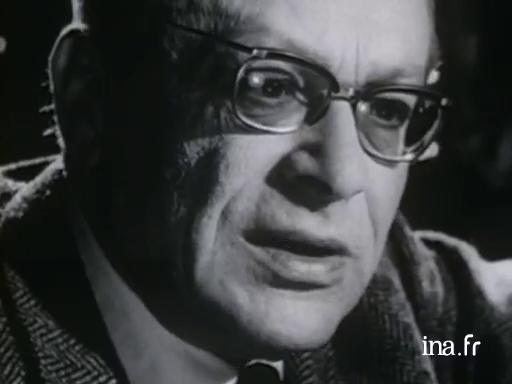Tristan Tzara speaks about the Dada movement

Information
In this interview, Tristan Tzara talks about the birth of the Dada movement in Switzerland, the support of the review Littérature directed by Aragon, Soupault and Breton, the content of this movement's programme, and the quarter of Montparnasse where all the intellectuals met.
- Europe > France > Ile-de-France > Paris
- Europe > Romania
- Europe > Switzerland
Context
Polish writer Tristan Tzara, born as Samuel Rosenstock, was born in 1896.
His name is definitely linked to the Dada. In fact, he's considered to be the father of this literary movement which originated in Zurich. In 1916, he published the first Dada manifesto, The First Heavenly Adventure of Mr. Antipyrine which advocates "abolition of the memory, abolition of the future and abolition of logic" and "the absolute belief in spontaneity and living for the moment". Arriving in Paris in 1919, he becomes friends with André Breton and they both introduce the Dada movement in France. They stage a series of scandals and provocations and bring a number of literary innovations to the table. They dream up singular and disconcerting creations, like phonetic poetry or automatic writing, seeking to replace the meaning of words with the poetic act of creation itself.
In 1922, Tzara severs his ties with Breton and continues to preach the word of Dada. In 1931, he publishes Approximate Man, a great automatic portrait that is overflowing with lyricism. From 1935 on, he joins the association of revolutionary writers and artists and befriends Aragon. He participates in the Spanish writers' struggle during the Spanish war and goes underground. During the Occupation, he continues to militate for the Communist Party. He is buried in Paris's Montparnasse cemetery.


